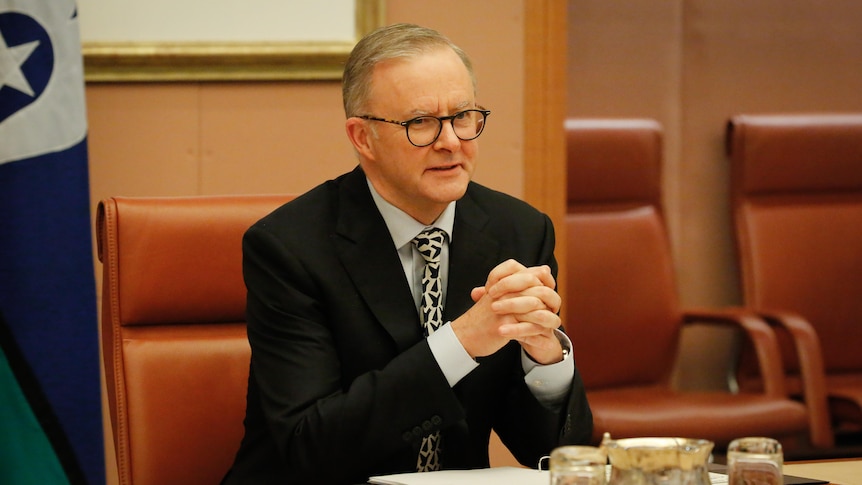In May 2022 Anthony Albanese became Australia’s 31st Prime Minister – but the first Prime Minister with a non-Anglo background and name. Albanese is, of course, an Italian name.

The Guardian dedicated an article to teaching readers how to properly pronounce Albanese. It’s probably a first. I can’t imagine Morrison, Turnbull, Abbott, Gillard, Rudd, Howard, Keating, Hawke, Fraser, Whitlam etc ever had articles written about how to properly pronounce their name.
Pronouncing, or anglicising, ethnic sounding names and words has been a long tradition here in Australia.
What’s in a name?
Now I don’t want to get hung up on this detail but I think it is something to acknowledge.
I am Greek-Australian and spent many years helping people correctly pronounce my surname. Even with my married name I need to often correct people on the correct pronunciation of Tedeschi (Te-de-ski) – the ‘ch’ makes a ‘k’ sound.
Anyway, it’s just one of those things that you have to live with when you don’t have an Anglo name.
What does having an Italian or Greek surname mean for diversity in 2022? Maybe not a whole lot. But it does mean something….to some people.
Economist Ash Salardini wrote an opinion piece in The Sydney Morning Herald /The Age that voting Anthony Albanese as Prime Minister is not diversity in action. Now I agree with Ash that this certainly is not a ‘we have arrived at diversity’ moment. We haven’t arrived but there is a step here that should not be ignored.

Much like when Julia Gillard became our first female Prime Minister – we hadn’t arrived at gender equity, not by a long shot, but we should at least acknowledge, if celebrating is deemed too strong a response, to a step being made.
In 2022, being of Greek or Italian descent is nowhere near as unfavourable as it once was. Somewhere in the late 90s or so, certainly by the time Howard’s Tampa fiasco took place, migrants from Southern Europe and their children weren’t subjected to name calling (wogs or dagos) and negative stereotyping that was once common place. I remember the change from being ‘English settlement’ of Australia and was is now referred to as ‘European settlement’. Does that now encompass all of Europe?
And certainly, if you look at the cultural make up of Australia today it is far more varied than ever before.
I’d like to think that people just realised that Greeks and Italians were not a scourge on society and that people are indeed just people. But no, Greeks and Italians no longer seemed so bad because there was a new ‘other’ to focus on. Namely anyone from the Middle East or Asia and later on Africa.
Irish people are like English people right?
I wonder if this is what happened with the Irish when they were no longer ‘othered’. Greeks and Italians migrated in the 50s and 60s….you get the rest.
As an aside, I remember being confused when I learned that the Irish were once ‘othered’. At the time I thought it strange because to me Irish/English/Scottish were same-same. But I’m sure if I ask an Irish person, they’ll tell me otherwise.
Which brings me to the point I’m trying to make.
Are you Europeans and English the same?
I acknowledge that my children who were all born this century, with their Italian and Greek heritage, have never suffered from racism. So maybe for migrants from outside of Europe do look at all migrants from Europe and think ‘Europeans/English are same-same’. I don’t know. Just a thought.
As their mother I cannot begin to tell you how wonderful that makes me feel have not suffered racism. Racism is destructive and pointless. I did suffer from racism growing up. So, for people my age and older, there were obstacles we had to overcome.
An Australian-Italian being voted in as Prime Minister in 2022 is not the hallmark of diversity, BUT it does mean something to those of us old enough to remember being excluded and being labelled as WOG, as Greeks and Italians often were.
I am sure that Anthony Albanese did have to overcome. By Albo’s own admission when he entered federal parliament in 1996 he changed the pronunciation of surname to sound more Anglo; be more palatable. I guess he was just trying to make people feel comfortable and at ease with this Italian name.
It’s a perfect example of people who are ‘othered’ having to work to reassure those in the ‘establishment’. It’s all about power games.
But in true Aussie fashion, Albanese just got shortened to Albo.
Congratulations on your election win Albo. And I’m sure Italians are asking, what’s an Albo?